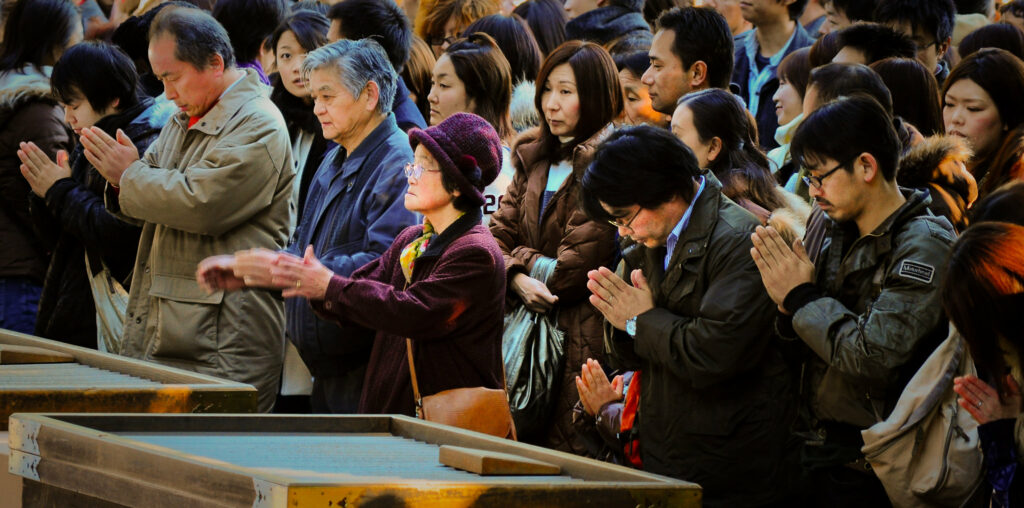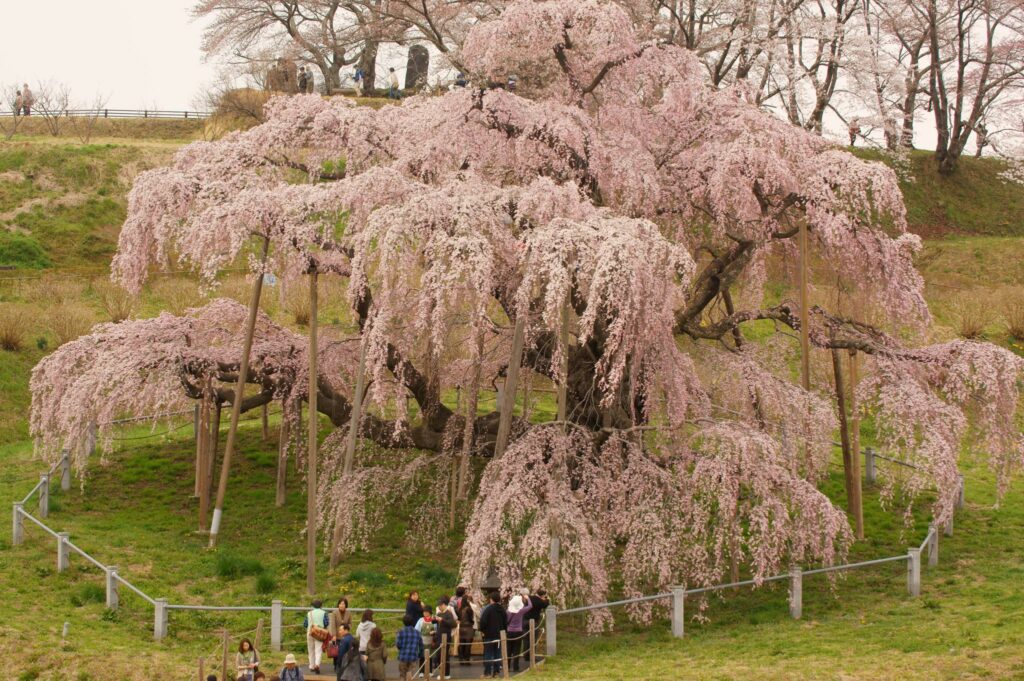
The Japanese cultural tapestry is woven with centuries-old rituals, festivals and rituals juxtaposed against a backdrop of neon-lit cities and technological wonders. At the heart of this cultural landscape are Japan’s public holidays and annual events that highlight the Japanese calendar, each telling a story about Japan’s history, values, and aspirations.
Deeply rooted in folklore, religion and imperial traditions, these events provide locals and visitors alike an unparalleled insight into the heart and soul of Japan. In this guide, we embark on a journey throughout 2024, exploring the meaning, traditions, and celebrations of Japan’s most cherished public holidays and annual events. Whether you’re a seasoned traveler, a curious explorer, or just interested in culture, this guide promises to be a window into the vibrant and diverse world of Japanese celebrations.
- January 1 – New Year’s Day (Ganjitsu)
- January 8 (Second Monday in January) – Coming of Age Day (Seijin no Hi)
- February 11 (Observed on February 12) – National Foundation Day (Kenkoku Kinen no Hi)
- February 23 – Emperor’s Birthday (Tennō Tanjōbi)
- March 20 – Vernal Equinox Day (Shunbun no Hi)
- Late April to early May – Golden Week
- April 29 – Showa Day (Shōwa no Hi)
- May 3 – Constitution Day (Constitution Day, Kenpō Kinenbi)
- May 4 – Greenery Day (Midori no Hi)
- May 5 (Observed on May 6) – Children’s Day (Children’s Day, Kodomo no Hi)
- July 7 – Tanabata (Star Festival)
- July 15 (Third Monday in July) – Marine Day (Umi no Hi)
- August 11 (Observed on August 12) – Mountain Day (Yama no Hi)
- Mid-August – Obon Festival
- September 16 (Third Monday in September) – Respect for the Aged Day (Keirō no Hi)
- September 22 (Observed on September 23) – Autumn Equinox Day (Shūbun no Hi)
- October 14 (Second Monday in October) – Sports Day (体育の日, Taiiku no Hi)
- November 3 (Observed on September 23) – Culture Day (Bunka no Hi)
- November 23 – Labor Thanksgiving Day (Kinrō Kansha no Hi)
- conclusion
January 1 – New Year’s Day (Ganjitsu)
dawn Japanese New Year It is greeted with joy, reflection and respect. At ‘Oshogatsu’, as it is known locally, you can see families gathering to share traditional foods such as ‘osechi ryori’ and ‘mochi’. The sound of bells announcing the end of the old year and welcoming the new year fills the air. Many Japanese people visit shrines and temples and participate in the age-old custom of ‘hatsumode’, the first shrine visit of the year, to pray for health, happiness and prosperity.
People visit shrines at midnight (or at some point during the holiday) to offer prayers for happiness and prosperity in the new year. Source: Flickr/torek
January 8 (Second Monday in January) – Coming of Age Day (Seijin no Hi)
A rite of passage for all teenagers in Japan, this day commemorates those who have turned 20 in the past year and symbolizes their transition into adulthood. Lively ceremonies are held throughout the country, with young women dazzling in colorful kimonos, usually furisode (long sleeves), while men are mostly dressed in Western-style suits, but can sometimes be seen wearing traditional ‘hakama’. .
February 11 (Observed on February 12) – National Foundation Day (Kenkoku Kinen no Hi)
An important day in Japan’s historical calendar, National Foundation Day commemorates the founding of Japan and the accession to the throne of its first emperor, Emperor Jimmu. Rooted in mythology and ancient chronicles, this day is a testament to Japan’s rich heritage and continued respect for its origins. National flags are hoisted throughout the country, and ceremonies commemorating the founding of the nation are held. It is a day of reflection and pride for Japanese people to remind them of their roots and their country’s journey through time.
February 23 – Emperor’s Birthday (Tennō Tanjōbi)
Emperor’s Birthday, a day of national pride and respect, commemorates the birth of Emperor Naruhito. imperial palace TokyoNormally closed to the public, it opens on this day, allowing citizens and tourists alike to get a glimpse of the emperor and royal family appearing in public.
March 20 – Vernal Equinox Day (Shunbun no Hi)
The vernal equinox, which signals the arrival of spring, is a day to celebrate nature and living things. Families often visit graves to pay respects to their ancestors, and many people enjoy the blooming flowers and warm weather that usher in the new season.

On the day of the spring equinox in Japan, cherry blossoms in full bloom create a fascinating sight, signaling the arrival of spring. Credit: Flickr/ayumew
Late April to early May – golden holiday
Golden Week is a much-anticipated period consisting of four public holidays over seven days. This week begins with Showa Day, which honors Emperor Showa (Hirohito), and continues with Children’s Day, which celebrates the happiness of children. Travel activities are busy, with many Japanese going on vacation or visiting their hometowns.
April 29 – Showa Day (Shōwa no Hi)
It is a day to commemorate the reign of Emperor Showa (Hirohito) and to encourage public reflection on the events of the Showa period. Golden Week, a Japanese holiday, has begun.
May 3 – Constitution Day (Constitution Day, Kenpō Kinenbi)
This day, which commemorates the promulgation of the post-war constitution in 1947, is a day to reflect on Japan’s democracy and rule of law.
May 4 – Greenery Day (Midori no Hi)
Greenery Day, a day dedicated to nature and the environment, is a day to express gratitude for nature’s blessings and encourage environmental conservation.
May 5 (Observed on May 6) – Children’s Day (Children’s Day, Kodomo no Hi)
Children’s Day, the last holiday of Golden Week, is a day to celebrate the happiness and well-being of children. Families fly colorful koi-shaped flags and display samurai dolls to wish their children strength and success.
July 7 – Tanabata (Star Festival)
Filled with celestial legends, Tanabata celebrates the romantic story of Orihime and Hikoboshi, two gods represented by Vega and Altair. According to legend, they are separated by the Milky Way and can meet only once a year on this day. The streets are decorated with colorful paper decorations, and people write their wishes on pieces of paper and hang them on bamboo branches.
July 15 (Third Monday in July) – Marine Day (Umi no Hi)
Marine Day, which celebrates the ocean and its blessings, is a time to enjoy beach outings and marine-themed events. It is a day to appreciate the island nation’s maritime heritage.
August 11 (Observed on August 12) – Mountain Day (Yama no Hi)
Mountain Appreciation Day is a day to encourage people to explore and enjoy the natural beauty of Japan’s mountainous terrain. It is a celebration of the grandeur of nature and the spiritual significance of mountains in Japanese culture.
Mid-August – Obon Festival
Obon, a poignant Buddhist festival, is a time to honor the souls of our departed ancestors. Families gather together to clean graves and pray. Evenings come alive with ‘Bon Odori’, a traditional dance performed around the pagoda accompanied by taiko drums. The festival concludes with the floating of lanterns into the river, symbolizing the soul’s return to the afterlife.
September 16 (Third Monday in September) – Respect for the Aged Day (Keirō no Hi)
In a country that deeply values older people, this day celebrates their wisdom, experience and contribution to society. Various events and ceremonies are held throughout Japan to show gratitude and respect to the elderly.
September 22 (Observed on September 23) – Autumn Equinox Day (Shūbun no Hi)
The fall equinox, when day and night become equal, marks the transition from the warm days of summer to the refreshing cold of fall. In Japan, it is a day to honor past generations, visit family graves, and celebrate the bounty of nature.
October 14 (Second Monday in October) – Sports Day (体育の日, Taiiku no Hi)
Sports Day, which celebrates athleticism and promotes physical and mental well-being, is a testament to Japan’s commitment to health and fitness. Originally established to commemorate this 1964 Tokyo Olympics, on that day numerous sporting events and activities take place in schools, communities and public stadiums. From traditional martial arts demonstrations to modern athletic competitions, it is a day for people of all ages to participate, compete and cheer together, fostering a sense of community and celebrating the joy of exercise.
November 3 (Observed on September 23) – Culture Day (Bunka no Hi)
It is a day that highlights Japan’s rich arts, culture, and academics. From traditional performances to contemporary art exhibitions, Culture Day hosts a variety of events showcasing the country’s cultural heritage. It is also the day when prestigious cultural medals are awarded to individuals who have made significant contributions to Japanese culture.
November 23 – Labor Thanksgiving Day (Kinrō Kansha no Hi)
A modern successor to the ancient harvest festival, this day is a tribute to workers and their contributions to society. It is a time to reflect on the meaning of labor rights and community, and to express gratitude for the year’s hard work.
conclusion
The tapestry of the Japanese cultural calendar is rich, diverse and deeply symbolic, reflecting the country’s deep respect for tradition, nature and community. Each holiday and annual event is accompanied by a story that provides insight into the values, beliefs, and spirit of the Japanese people. Whether it’s the quiet beauty of cherry blossoms in spring, heartfelt reunions during Obon, or nationwide Golden Week celebrations, these events provide a window into the soul of Japan.
For travelers and enthusiasts alike, simply participating in or witnessing these events can be a transformative experience that deepens understanding and appreciation of this beautiful country. As 2024 unfolds, we hope you find joy, inspiration, and connection in the many celebrations Japan has to offer. It’s about embracing the old, welcoming the new, and cherishing the timeless essence of Japanese culture.